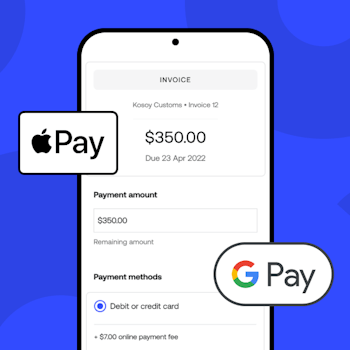
When are you ready to hire your first employee?
The decision to take on your first employee is a big one. While on the one hand it signifies growth and potentially increasing opportunities, it also comes with greater risk and responsibility.
Some will say you should take on support as quickly as possible so you can focus on growing quickly and ensure you don’t miss out on any opportunities. Those who are more risk-averse will say the only time you should take on the added responsibility of someone else’s paycheck is when you are 100 percent sure the time is right.
Ultimately, the decision is yours. Here are some tips to help you figure out when the time is right for your business:
Understand your cash flow
As a first step, getting a solid grasp on your predictable, somewhat guaranteed income moving forward is essential. Look beyond an average, and study your cash flow month by month, including any traditionally slow times.
Think about the true costs of bringing on an employee. The hourly wage or salary is obvious, but what are the tax implications, and how much would you pay in social security or equipment or tools they may need? You may also be on the hook for training or certifications.
Consistent profits
Looking across the past year, are your profits fairly consistent? Is there profit every month and if there isn’t, does revenue the next month balance that? While it can be expected for a business to have more and less profitable months, when you have an employee, you cannot defer their payment as you might your own, waiting for the busier month to come along. Taking on an employee you must be sure, month after month, that you can meet the payroll regardless.
Know your workload
If you’re amid a hectic time, it can be tempting to hire someone on the spot to get you through those times. However, if you look ahead and know that in a month or two you’ll just have enough work for one, you might be looking more at temporary short-term help.
If you’re regularly turning away work, or taking it on but having to work extra hours to get the job done, that can be a good indicator you’re ready for someone to help regularly.
Identify what the job will be
It may sound obvious, but you should know specifically what tasks you need assistance with. Take a moment to be explicit about it and write it down. This will give you a better handle on whether you need full-time or part-time assistance or whether a seasonal employee during the busier times might make more sense. Perhaps someone to handle one aspect of work, not as an employee but as a contractor, makes more sense.
Having defined roles and responsibilities, and the criteria under which these need to be completed, can also help you make sure you’re hiring the right person for the job, and that both of you know what is expected.
Knowing your own role in the business
At some point, many business owners decide they want to run the business, rather than be the business. Others may never want to give up that level of involvement and may choose to stay the one and only primary. Understand why you started the business. Was it for growth or with the intention of always maintaining a one-person shop? How much involvement do you want in the future? These are important questions you should address before deciding to hire.
Start with a temporary arrangement
No decision has to be final. Build a three-month trial period into your employment contract so you can test the waters with new hires before committing in a more substantial way. This gives you a chance to assess the actual employee or bringing someone on to help altogether.
If you’ve already hired someone, are there any lessons you’ve learned along the way? Share with others in the comments.
Related Articles

How to accept credit card payments on Invoice2go in 3 simple steps

Accept payments online via Apple Pay and Google Pay

Must-not-miss write-offs as you wrap up 2022 year-end finances

5 ways accepting credit and debit card payments helps your business stay resilient

4 easy ways to increase cash flow today

What is Small Business Saturday and why is it important?
The features and surprising benefits of a well-designed packing slip
